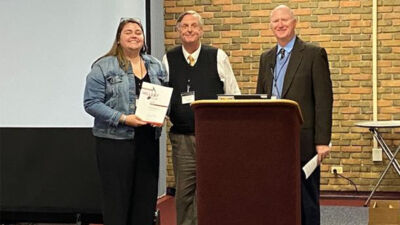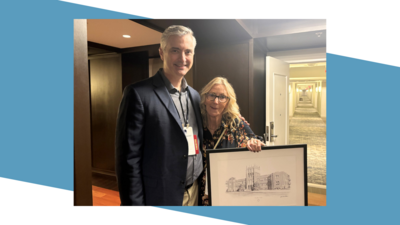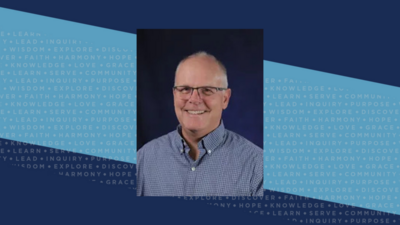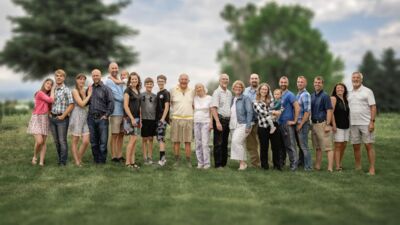Bethany Zeckzer '22 Receives Composition Award

Bethany Zeckzer has received the Richard Hillert Award in Student Composition from the Center for Church Music at Concordia University Chicago for her SATB choir anthem “An Evening Prayer.”
The Richard Hillert Award in Student Composition is awarded every other year by the Center of Church Music at Concordia University Chicago (CUC). Nominations are open to any student at a Lutheran university or seminary in the United States. She was recognized at the Lectures in Church Music Conference at Concordia University Chicago on October 17 and will be recognized at the Association of Lutheran Church Musicians conference in Philadelphia in July.
I had a chance to sit down with Bethany to ask her a few questions about her experience composing the piece.
BL: Tell me a little bit about the process of writing the piece. What inspired you to choose the lyrics?
BZ: I chose the lyrics kind of by accident! I had written the first line of music, but I was trying to find words that would fit. In the Christian hymnody class I was taking, we were studying LSB 889, and the first line of the text of that hymn fit with the music I had already written. From that point, I wrote the music as I paraphrased the text.
BL: To what extent was the composition inspired by the lyrics?
BZ: I paraphrased the lyrics as I wrote the music, so they both influenced each other. Some lines of music wrote themselves, so I had to write the lyrics to match the music. At the same time, sometimes the text had to be worded in a certain way, so I wrote the music to match it.
BL: Was this a challenging piece to write?
BZ: This song wrote itself. When I sat down to write it, I didn’t have an end goal in mind, or a roadmap that I wanted to follow. It wasn’t until after the piece was finished and given to a choir to sing that I noticed some of the cool text painting things that happen throughout it.
BL: What did you learn throughout the process of composing?
BZ: Composing this piece seemed like something I had to do to check off a box and get done while it was happening but looking back on the semester that I wrote it (Fall 2020), I can see a lot of what I was doing being reflected in the piece. At that point, most people in my life (me included) were living in a giant state of unknown. Would we get sent home in the middle of the semester because of a Covid outbreak? Would Christmas at Concordia get canceled? The countless prayers that I prayed in that season of life followed a similar pattern: God, You are good, and I know You are good… but why is the world the way that it is? And I would ask God so many “why” questions. But it always came back to - God, You are good, and I know You are good, so remind me that You are good.
BL: That’s amazing. How is that sentiment reflected in the piece?
Each phrase starts with a similar melodic motive, and then it wanders, and each phrase ends differently. Within the phrases there are unresolved dissonances, or “crunchy chords” as I like to call them, and at points, it feels like the music is wandering in circles. But the next phrase always ends, and the next one starts with the same melody. At the end of the piece, the melody appears again, but in a different key, and leading into a final cadence in yet a different key, lining up with my prayers in that season ending with the same thought as they begin with.
BL: What message do you want people to get from this piece?
The Concordia University A Cappella Choir sang it on their Spring 2021 tour. It was so cool being in a choir singing a piece that I wrote. This whole experience has shown me that God works in crazy ways, and the fact that this piece has been placed on this stage speaks to His plan for the furthering of His kingdom. God is good.
Listen to a performance of “An Evening Prayer.”
Related Stories


